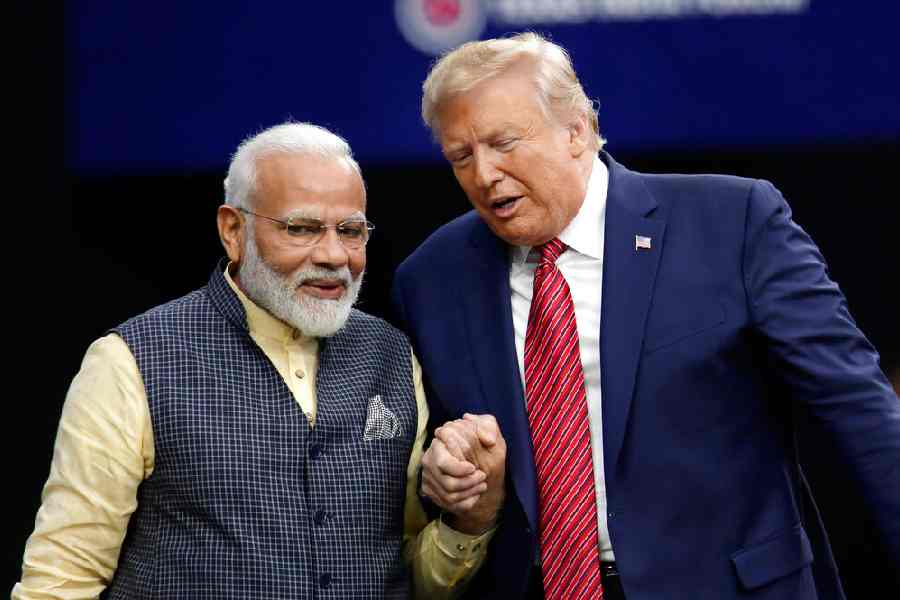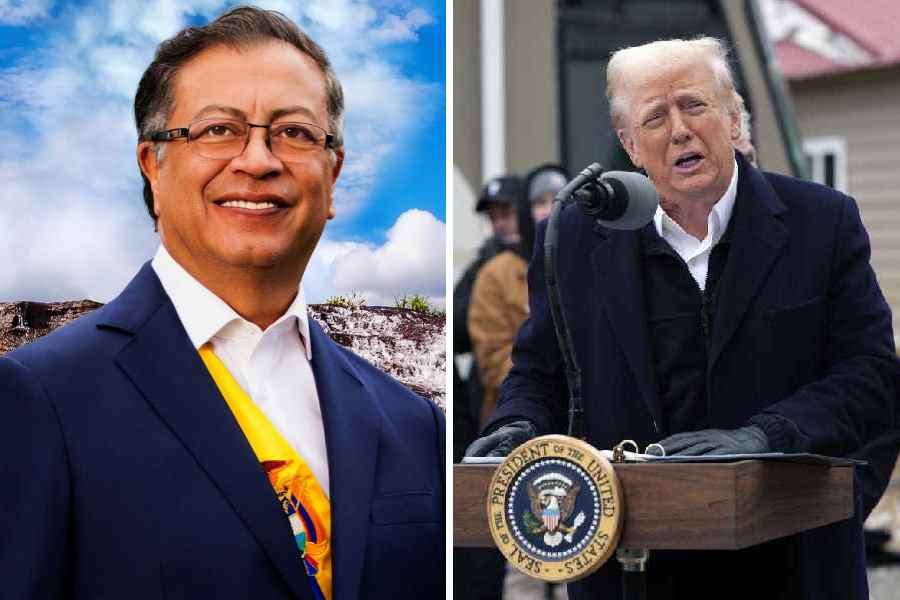Digital afterlife
Sir — Humans may have finally achieved immortality, albeit digital. Marina Smith, a leading Holocaust campaigner, returned from the grave to answer her relatives’ questions and reveal family secrets, at her own memorial no less, thanks to Artificial Intelligence. Soon, people will be able to chat with the dearly departed, that is as long as they can afford the hefty price tag of such AI technology. Death will no longer be the great equaliser since the poor will have to grieve the old-fashioned way. In the future, the rich will never really have to say goodbye to their near and dear ones — unless, of course, their WiFi cuts out.
Palash Das, Calcutta
Unhealthy stance
Sir — The United States of America’s withdrawal from the World Health Organization risks undermining its role as a global health leader. The WHO is indispensable in addressing infectious diseases, tracking emerging health threats, and coordinating international responses. The US, as a founding member and significant contributor, has benefited immensely from the WHO’s networks, particularly in public health research and epidemic preparedness. If the US abandons this cooperation, it not only weakens global health security but also limits its own access to critical information, putting both domestic and global health at greater risk. It is thus heartening that the US president, Donald Trump, who took the country out of the WHO on his first day in office, has said that America might return if the WHO undergoes reforms.
Monirul Islam, Calcutta
Sir — The US’s commitment to the WHO is vital for its own health security. The global health network built by the WHO allows American institutions like the Centers for Disease Control and Prevention to collaborate on research and track diseases. Without the WHO, the US risks being isolated in tackling cross-border health threats, potentially leaving Americans more vulnerable to pandemics. The WHO’s influence and expertise are essential in preventing future health emergencies. Pulling out would not just affect poorer nations; it would compromise US preparedness as well.
Gurnoor Grewal, Chandigarh
Sir — The US has long played a pivotal role in the WHO, from eradicating smallpox to leading global health initiatives. As a founding member, the country has a historical responsibility to continue supporting the organisation. If the US chooses to disengage, it could encourage other nations to do the same, eroding the very structures that protect the world against pandemics and disease outbreaks.
Sanjukta Dasgupta, Calcutta
Sir — In an interconnected world, no country can remain immune from the spread of diseases. The WHO provides essential infrastructure for global solidarity in tackling pandemics, ensuring fairness in vaccine distribution, and setting global health standards. The US, as one of the wealthiest nations, has both the responsibility and the means to remain an active participant. Leaving the WHO would send a detrimental message of isolationism at a time when collaboration is more critical than ever.
Bishwanath Yadav, West Burdwan
Real challenge
Sir — The rise of Twenty20 cricket has undoubtedly changed the landscape of Indian cricket but it must not come at the cost of Test cricket’s integrity. As the former cricketer, Wasim Jaffer, has pointed out, young players often prioritise T20 over the grind of red-ball cricket. The focus should return to building mental resilience and patience, crucial for Test cricket’s success. Without fostering traditional batting techniques — those slow, calculated knocks — Test cricket may lose its appeal, especially as shorter formats dominate. A balance between attacking flair and traditional virtues is essential to preserve the future of all formats.
Arun Kumar Baksi, Calcutta
Sir — While the Indian Premier League has brought financial success and global attention to Indian cricket, it has inadvertently shifted players’ priorities. Players are now attracted more to the quick rewards of T20 cricket than the sustained effort required in longer formats. The real challenge lies in motivating young cricketers to embrace the rigorousness of domestic and Test cricket. Financial incentives for domestic cricket are necessary but it is the hunger for success and the right mentorship that should be nurtured. The Board of Control for Cricket in India must rethink its approach to develop all-rounders.
Gopalaswamy J., Chennai
Sleep tight
Sir — In a world obsessed with productivity, sleep is often the first casualty. Yet, the commitment of the actor, Akshay Kumar, to eight hours of rest is a refreshing reminder that proper sleep is a productivity hack we all need. We may push ourselves to the limit in the name of efficiency, but it is the ones who value sleep who perform at their best. At a time when there are constant exhortations to work ever longer hours, Kumar’s message is timely.
Birkha Khadka Duvarseli, Siliguri











